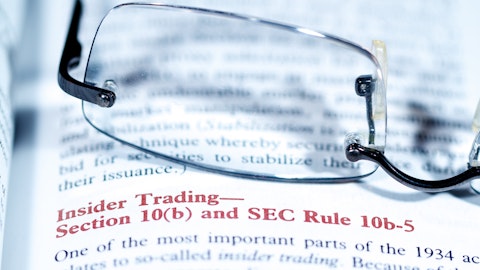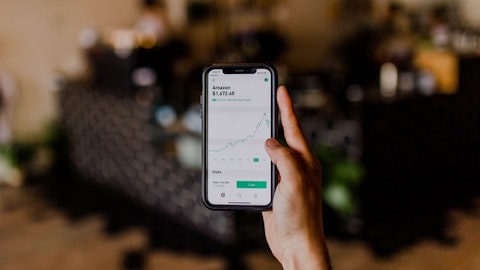Third Avenue Management LLC, a New York-based investment management company, released its Q2 2019 Portfolio Manager Commentary – a copy of which can be downloaded below. Founded by Martin J. Whitman, the firm has been focusing on deep value investing for over 25 years. Third Avenue Management has three strategies for asset management – real estate, small-cap, and value investing.
In addition to being the Founder and former Co-Chief Investment Officer of Third Avenue Management LLC, Whitman was also the Portfolio Manager of the Third Avenue Value Fund. He was a Syracuse University alumnus and held an M.A. from the New School of Social Research. He held various positions when he worked for NYC-based investment firms before founding M.J, Whitman & Co., his own company, in 1974. Whitman passed away on April 16, 2018.
The Third Avenue Value Fund is currently being co-managed by Matthew Fine and Michael Fineman.
A member of Third Avenue’s Management Committee and co-manager of the Third Avenue Value Strategy portfolios, Matthew Fine previously managed the Third Avenue International Value Fund and held various leadership positions in the firm since he joined in 2000. He garnered broad experience in global investing across developed and developing markets in Asia, Europe, Latin America, and North America. This Hamilton College alumnus and CFA Charterholder is a member of the Economic Club of New York, the CFA Society of New York, and the Board of Trustees of Suffield Academy.
With over 28 years of investing experience, Michael Fineman co-manages the Third Avenue Value Strategy portfolios. He worked with the firm for 8 years (until 2014) before rejoining in 2017. He is an expert in public and private equity and debt security investing. In addition to being a founding partner of Wall Hall Capital, Fineman worked with several financial management companies including Alex Brown, Ernst & Young, Goldman Sachs, and Raymond James. In addition to being a New York Society of Security Analysts, this CFA Charterholder also joined committees such as Building Materials Holding Corporation, Collins and Aikman, Grand Forest Products, Home Products International, LandSource Communities, and U.S. Shipping. He holds a bachelor’s degree from the University of Delaware and a master’s degree from Columbia Business School.
In its recent Shareholder Letter, the fund reported a -2.04% return for the second quarter, which compares to MSCI World Index’s 4.18% return. It provided an explanation about the fund’s underperformance during Q2 2019, which involves negotiations with China and Mexico.
“Dear Shareholders,
For the three months ended June 30th, 2019, the Third Avenue Value Fund (the “Fund”) returned -2.04%, compared to the MSCI World Index, which returned 4.18%1 . During the month of May, a deterioration in trade negotiations between the United States and China, followed by the threat of tariffs on virtually all goods imported into the United States from Mexico, led to a substantial change in sentiment surrounding the Fund’s industrial holdings, causing underperformance during the period.
The Fund has been intentionally out of step with broad market indices by focusing on smaller capitalization companies, by pursuing opportunities globally and by sticking to an orthodox value strategy. Each of these components of our strategy proved a headwind during the quarter and, moreover, in recent years, as larger capitalization U.S. growth stocks, as well as equities perceived as defensive in nature, have been highly dominant from a performance perspective. We view our strategy as simply rational and remain resolute. Furthermore, notwithstanding palpable nervousness and uncertainty in global equity markets, from the perspective of long-term global value investors, we view the current investment environment as the most attractive since the aftermath of the Global Financial Crisis. Assets crudely categorized as “risk assets” are, in some cases, offering extraordinary value, precisely because capital has continued to flow from those asset classes towards perceived safety. It is our view that, for a number of companies, critically important traits such as: the resilience of the business model, the long-term record of returns on capital, returns to shareholders and the safety afforded by a strong balance sheet are deeply underappreciated and belied by the classification of “cyclical” or “risk asset”. At the other end of the spectrum, the data points supporting a conclusion that we are experiencing bubble-like conditions in many assets perceived to provide safety are accumulating rapidly precisely because high prices in and of themselves create investment risk to the holder of the asset.
Further, at Third Avenue Management, we arrive at investment decisions through bottom-up fundamental analysis and our commentary above derives from such bottom-up observations. However, corroborating analysis is being published by those who arrive at similar conclusions using a wide variety of additional tools. For example, JP Morgan’s Global Quantitative & Derivatives Strategy team recently published a report entitled “Largest Divergence Ever Presents Opportunity for Value and High Volatility Stocks.” The report goes on to say that “The bubble of low volatility stocks vs value stocks is now more significant than any relative valuation bubble the equity market experienced in modern history”, where value is defined as the cheapest quintile of the market and “low volatility” is defined as the least volatile quintile of the market over the past twelve months.”
You can download a copy of Third Avenue Management LLC’s Q2 2019 Shareholder Letter here:
Third Avenue Management LLC’s Q2 2019 Shareholder Letter
You can also see the list of our 2019 Q2 investor letters and download them on this page.





